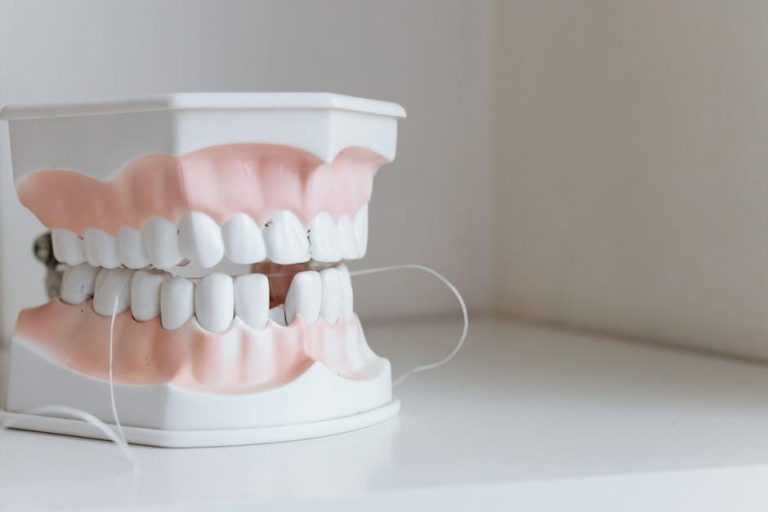
Regular Dental Flossing May Lower Risk of Stroke from Blood Clots and Irregular Heartbeats
Maintaining good oral hygiene goes beyond just having a bright smile—it could also be a key factor in protecting your heart health. Recent insights from www.heart.org suggest that regular dental flossing may help reduce the risk of stroke caused by blood clots and irregular heartbeats. In this article, we’ll dive deep into the connection between oral health and cardiovascular disease, explain how dental flossing plays a crucial role, and provide actionable tips to improve your overall heart and oral wellness.
Understanding the Link Between Oral Health and Heart Disease
It might surprise many that poor oral hygiene is associated with an increased risk of cardiovascular problems such as stroke, atrial fibrillation (irregular heartbeat), and blood clots. The mouth is home to billions of bacteria, and when oral hygiene is neglected, it can lead to gum disease (periodontitis), which causes inflammation.
How Does Gum Disease Impact Heart Health?
Gum disease allows harmful bacteria to enter the bloodstream. This can trigger inflammation in blood vessels, promoting the development of blood clots and disturbances in heart rhythm, such as atrial fibrillation. Both of these factors increase the risk of stroke — a life-threatening condition where brain blood supply is interrupted.
The Role of Dental Flossing in Stroke Prevention
Dental flossing is a simple, affordable habit that helps remove plaque and food particles stuck between teeth—areas where toothbrushes don’t always reach. By disrupting bacterial build-up in these spaces, flossing not only prevents cavities but significantly reduces gum inflammation and infection risks.
Key Benefits of Regular Flossing for Heart Health
- Reduces periodontal inflammation: Less inflammation means fewer bacteria entering the bloodstream, reducing vascular irritation.
- Improves blood vessel function: Healthier gums contribute to better endothelial function in arteries.
- Decreases risk of blood clots: Lower inflammation limits the cascade that promotes clot formation.
- Lowers likelihood of atrial fibrillation: Healthier systemic inflammation levels help reduce irregular heartbeats.
Supporting Research and Case Studies
A growing body of research has established the connections between oral health and cardiovascular events:
| Study | Findings | Implication for Flossing |
|---|---|---|
| American Heart Association (2023) | Individuals with gum disease had a 15% higher risk of stroke. | Proper gum care through flossing lowers stroke risk. |
| Journal of Periodontology (2022) | Consistent flossers showed improved blood vessel function by 20%. | Flossing supports vascular health and reduces artery inflammation. |
| Cardiology Review (2021) | Preventing gum inflammation correlated with fewer occurrences of atrial fibrillation. | Dental hygiene helps stabilize heart rhythm abnormalities. |
Practical Tips for Incorporating Dental Flossing into Your Routine
To reap these heart and oral health benefits, make flossing a consistent part of your daily hygiene regimen. Here are some expert tips to floss effectively:
- Choose the right floss: Whether waxed, unwaxed, tape, or floss picks, pick what works best with your comfort and teeth spacing.
- Be gentle but thorough: Slide the floss gently between teeth and curve it around each tooth to reach just below the gumline.
- Floss daily: Aim to floss at least once every day, preferably before bedtime to remove the day’s buildup.
- Combine with brushing: Brush teeth twice daily and follow flossing for a complete oral hygiene approach.
- Regular dental check-ups: Schedule professional cleanings and exams at least twice a year.
Real-Life Experience: How Flossing Changed John’s Health
John, 58, had a history of irregular heartbeats and minor strokes. His cardiologist emphasized the role of inflammation control, recommending a dental consultation.
After establishing a routine of daily flossing and improved oral hygiene, John noticed fewer episodes of atrial fibrillation and improved overall heart health during his subsequent cardiology check-ups. This personal testimony exemplifies how such simple oral care practices could complement medical approaches to prevent serious cardiovascular events.
Summary: Why You Should Floss for Your Heart’s Sake
While regular flossing is widely known to prevent cavities and gum disease, its impact stretches further into heart health by lowering inflammation and reducing risks of blood clots and atrial fibrillation — major contributors to stroke.
| Oral Health Habit | Heart Health Benefit |
|---|---|
| Daily Flossing | Decreased gum inflammation and lower stroke risk |
| Regular Brushing | Reduces plaque buildup that triggers systemic inflammation |
| Routine Dental Visits | Early detection of gum disease and prevention of cardiovascular complications |
Conclusion
Incorporating regular dental flossing into your daily routine is a powerful step not only toward a healthier mouth but also toward protecting your heart. By decreasing oral inflammation and bacterial spread, flossing potentially reduces the risk of blood clots, irregular heartbeats, and ultimately stroke. For optimal heart and oral health, combine flossing with consistent brushing, healthy lifestyle choices, and professional dental care. Visit www.heart.org for more updates and tips on keeping your heart strong and healthy.


